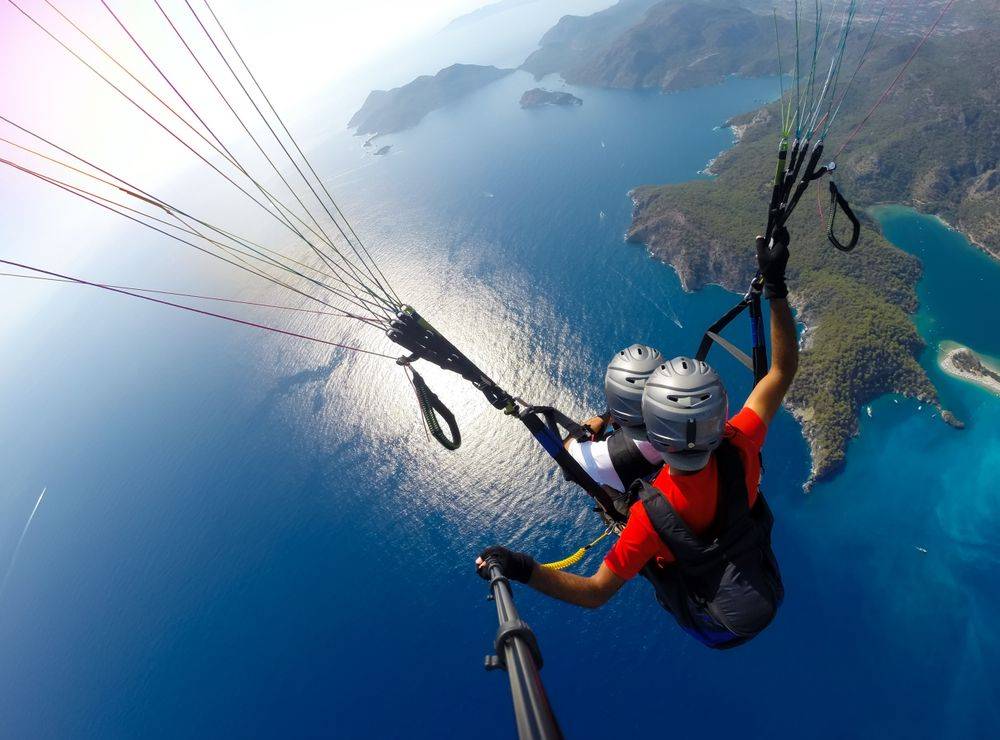



Sports Injuries: Are They Covered by Insurance?
24th October 2025


Regular exercise is a key component of good health. Fortunately, there is no shortage of sports activities for you and your family to enjoy in Hong Kong. Whether you love hiking, soccer, basketball, frisbee, dodgeball, rugby, badminton, tennis, trail running, bouldering, windsurfing, stand-up paddleboarding, or anything in between, you might be wondering: are your sports-related injuries covered by your health insurance plan?
Does health insurance cover sports injuries?
Health insurance usually covers sports-related injuries/accidents if you do not engage in a professional matter and if the sport is not considered hazardous. So if you’ve injured your shoulder during a recreational rugby match or sprained an ankle on an evening jog, your health insurance should cover treatment for those injuries.
Is physiotherapy covered by health insurance?
Physiotherapy, which can have a role to play in rehabilitation after a sports injury, is usually covered by health insurance plans under inpatient and outpatient care. Note, however, that your insurance provider may require a referral for physiotherapy from a medical doctor for your reimbursement, particularly if you are to undergo a series of physiotherapy treatments.
Be aware of limitations on your coverage for physiotherapy. Carefully read your policy documents to find out: What is the maximum number of sessions per year? What is the maximum overall amount per year? What is the maximum amount per session?
Does health insurance cover injuries from extreme sports?
Generally, standard health insurance plans don’t cover injuries arising from extreme sports and hazardous activities. At present, individual plans from Bupa Global appear to be the only plans that do not have any exclusions on sports activities.
Each insurer has its own way of classifying hazardous activities, so be sure to look carefully at your policy documents to see if yours is covered. Sports that may be considered hazardous by your insurer (and therefore excluded from coverage) include motosports, off-piste skiing, free-climbing, bungee jumping and scuba diving.
Moreover, some insurers cover extreme sports under very specific conditions. Take scuba diving as an example. Some insurers do not cover scuba diving at all. Others cover scuba diving up to a depth of 30 meters – provided that you are accompanied by a PADI instructor or you hold the appropriate PADI qualification.
If you’re confused about your coverage, check the terms and conditions of your policy or contact your health insurance advisor, who can help provide you with the information you need and answer your questions.
What insurance covers extreme sports?
Personal accident insurance
If you’re looking for insurance that covers injuries from extreme sports, you may wish to consider personal accident insurance. However, these plans typically do not cover injuries from sports in which you participate in a professional capacity.
The Zurich Sporitfly Sport Protection plan covers many common sports in Hong Kong, including some extreme sports like BMX freestyle, scooters freestyle, paragliding, diving and rock climbing. This plan includes cover for treatment of cardiac arrest or coma (up to HK$ 100,000 per accident) and surgery for broken bones, torn ligaments, and ruptured tendons (up to HK$ 20,000 per accident, 3 accidents per year).
As always, you’ll want to pay close attention to the policy wording and understand the coverage amounts, limitations, and exclusions. For example, the Zurich Sportifly plan only covers injuries that occur and are treated in Hong Kong. It also does not cover any kind of dental treatment, so if you get your teeth knocked out in a rock-climbing accident, fixing them won’t be covered by this plan (though it might be covered by a health insurance plan’s emergency dental benefit).
Travel insurance
If you’re traveling abroad to hit the crags or go scuba diving, travel insurance may be another option to consider for coverage of extreme sports (again, as long as you’re participating in a non-professional manner).
The SmartTraveller Plus plan from AXA covers a wide range of extreme sports, such as scuba diving, windsurfing, snorkeling, water surfing, snowboarding, jet skiing, bungee jumping, paragliding, sky diving, parasailing, snowboarding, skiing, dog sledding, and so on.
The TravelEase Single Trip Travel Insurance plan from Chubb covers some extreme sporting activities, but be careful to check their exclusions for coverage details. White water rafting, mountaineering or trekking, skiing, and scuba diving are covered by this plan – as long as specific criteria are met. For example, mountaineering and trekking are covered provided that specialized equipment such as pickaxes are not required.
As always, you’ll want to look at the policy wording to have a clear understanding of any exclusions. Most plans have restrictions on how high above or below sea level you can go. For example, they might not cover trekking at an altitude greater than 5,000 meters above sea level, nor might they cover scuba diving at a depth greater than 3,000 meters above sea level.
Still not sure which sports insurance to get?
As long as you’re neither participating in extreme sports nor engaging in a professional capacity, your health insurance should cover treatment for sports injuries. For extreme sports, personal accident or travel insurance may be worth considering, but beware of their limitations, caps and exclusions.
If you’re still not sure which sports insurance plan is best for you, get in touch with one of Alea’s insurance advisors. We are happy to go over your options with you. Best of all, consultations are free of charge.
Looking for life or health insurance for yourself, your family or your team?
Do you already have an insurance policy? You could find a better plan!
Alea brings you choice, unbiased advice and outstanding service, with access to 100+ options from 25+ insurance companies. If you already have an insurance policy, switching insurance policies with Alea doesn’t cost you a thing.
Get free quotes with us today.
An advisor will be in touch to answer all your questions!
This article was independently written by Alea and is not sponsored. It is informative only and not intended to be a substitute for professional advice and should never be relied upon for specific advice.

